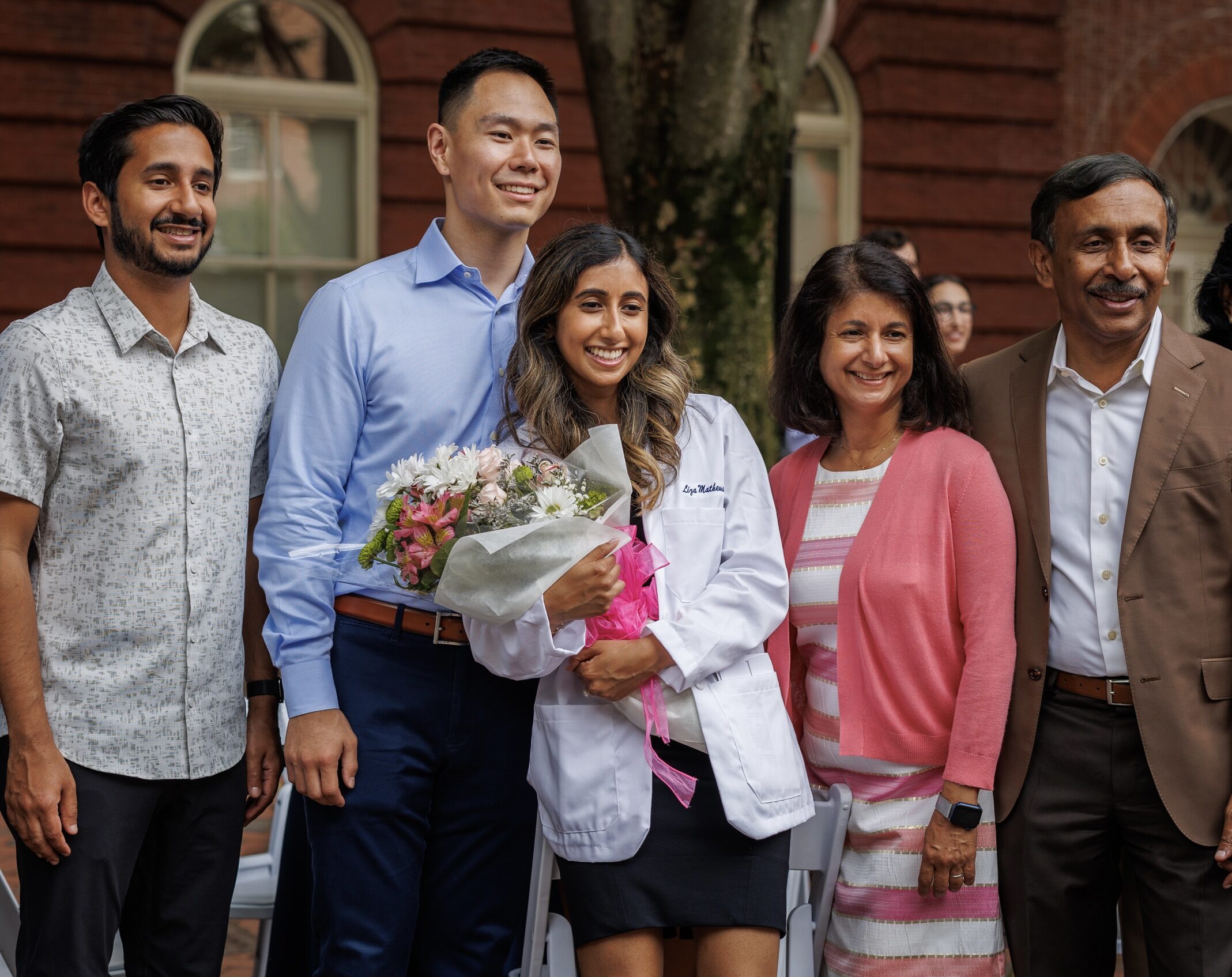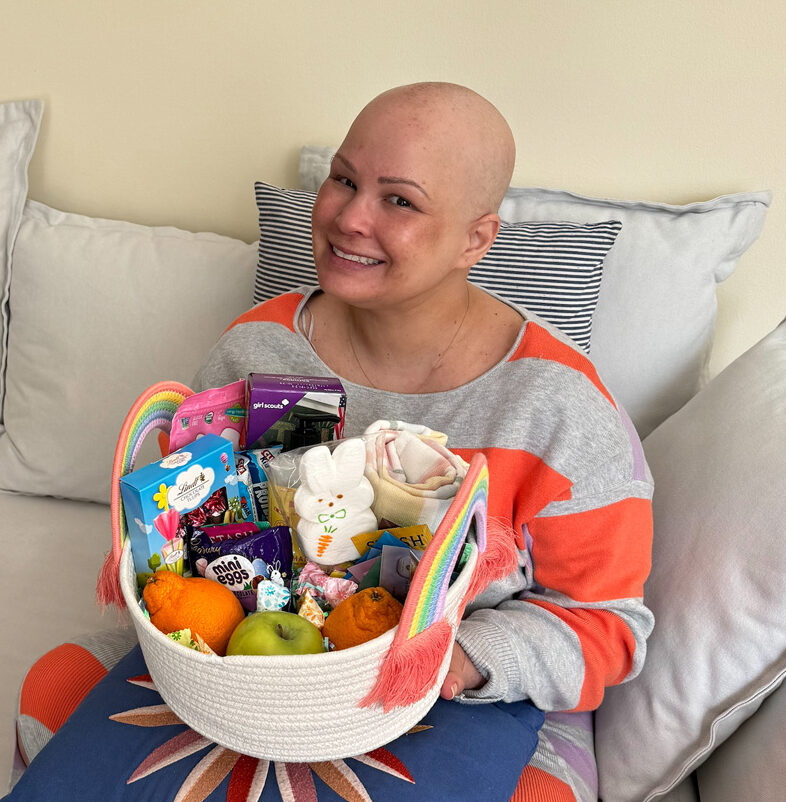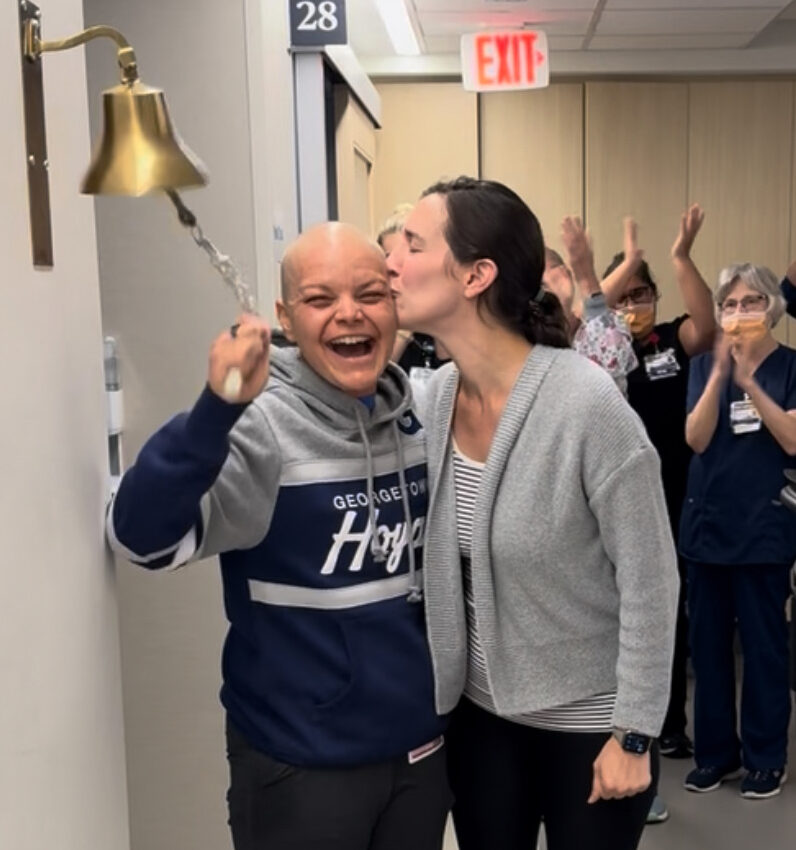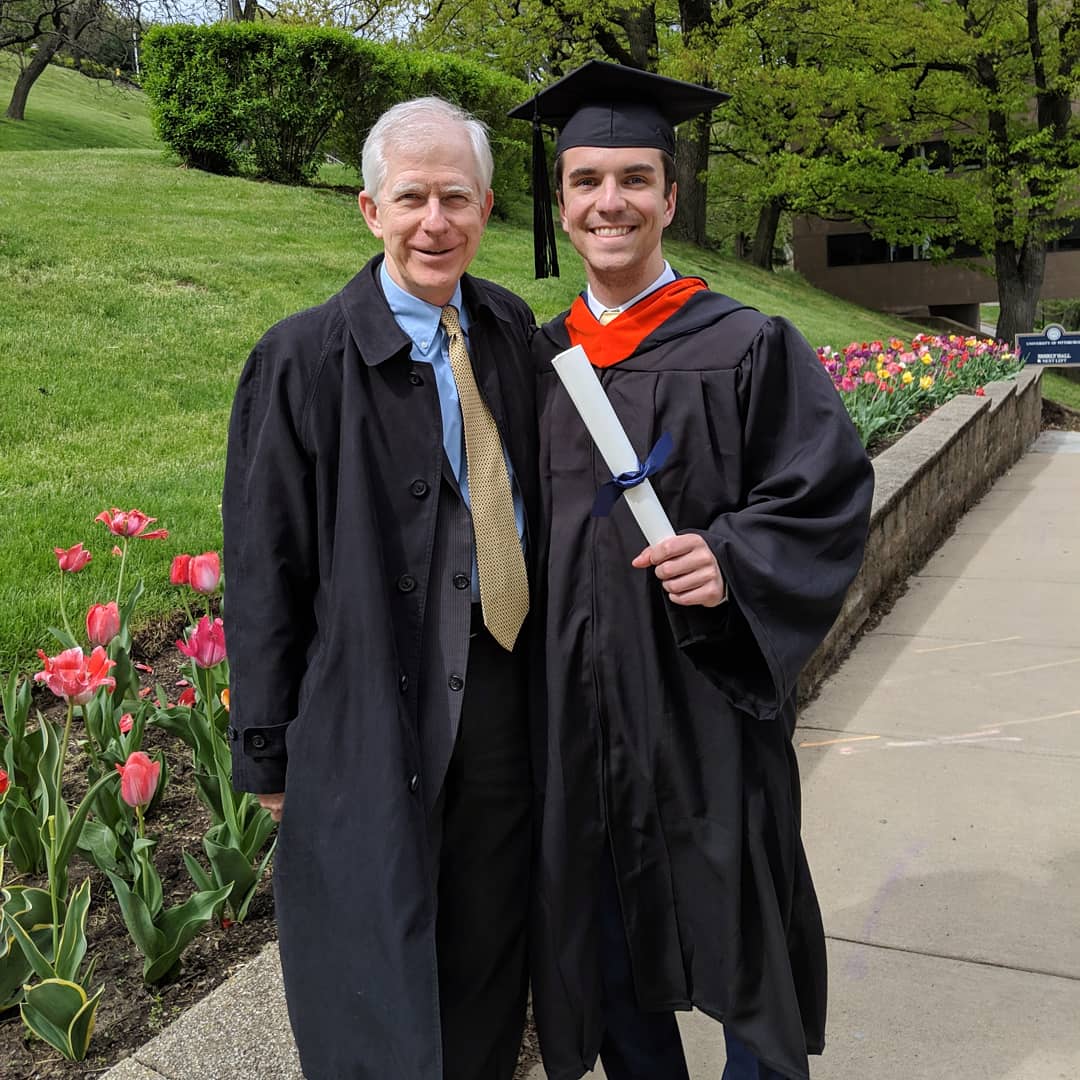
Liza Mathews-Kim, a rising second-year medical student at Georgetown University’s School of Medicine (GUSOM), has spent the summer as one of the first BellRinger Fellows — a program where students receive a summer research stipend and join a team within Georgetown University’s Lombardi Comprehensive Cancer Center to expand their academic research experience and play an important role in understanding and furthering cancer treatment and care.
As a Southern California native from Orange County, Liza has always harbored dual passions for computer science and medicine. Growing up, her interests were influenced by her father’s career as a physician and her mother’s battle with thyroid cancer when Liza was in eighth grade. This personal encounter with cancer, alongside a close relationship with an English teacher who faced late-stage breast cancer diagnosis, sparked her curiosity and determination to explore the intersection of technology and medicine.
Liza’s journey began with a strong foundation in computer science, which led her to pursue her undergraduate degree in the field at Johns Hopkins University. There, she worked in the radiation oncology department, focusing on modeling approaches to predict radiation-induced toxicity in head and neck cancer patients. This early experience laid the groundwork for her future in medicine, combining her technical skills with a deep interest in clinical applications.
Following her undergraduate studies, Liza worked at the National Institute of Health (NIH), delving into genetic analysis within the hematology department, which closely aligns with her passion for oncology. Yet, she found herself at a crossroads, torn between a career in clinical medicine and one in the tech field. This uncertainty led her to Harvard Medical School, where she pursued a master’s in biomedical informatics. At Harvard, she engaged in groundbreaking work using artificial intelligence (AI) to analyze pathology slides, aiding in the diagnosis of brain cancer.
Despite her success in the tech-oriented aspects of medicine, Liza realized her true passion lay in working directly with patients — a realization that guided her to furthering her studies at GUSOM.
Liza’s summer research as a BellRinger Fellow is both professionally and personally significant. Reflecting on her motivation, she shares, “I always knew that when I got to medical school, I wanted to continue research in cancer because I hoped to maybe be an oncologist. For the particular project I am working on as a BellRinger Fellow, they were looking for somebody that had a technical background. I was immediately drawn to it, as it’s not common for roles that align with bioinformatics to open up.”
Liza’s project focuses on thyroid cancer, a disease that is particularly important to her given her mother’s experience with the same diagnosis. Liza explains, “We have a big database of patients that have aggressive thyroid cancers and we’re trying to see if we can identify any patterns and what factors contribute the most to survival outcomes. My role focuses on the advanced data analysis techniques to identify those groups. Just looking at data could be difficult, so we are trying to use computational techniques to figure out if there’s anything under the surface there that we’re not seeing.”
Her day-to-day work is highly dynamic and iterative. “I feel like it’s very engineering,” Liza says. “Everyday, we’re trying to see if things work and seeing if they’re significant, and are prepared to shift gears if outcomes aren’t as intended. The work changes everyday, and that’s what makes it so interesting to be a part of.”
Liza has found immense support and guidance in her mentor, Dr. Leila Shobab. She elaborates, “It has been a wonderful experience working with Dr. Shobab. She has helped guide the clinical vision of the research, and has allowed me to work in a field that means so much to me.” Liza also works with fellow mentors and team members to further the technical aspects of the project.
Liza is eager to engage more deeply with the BellRinger community for the first time this fall. “I’m really excited to volunteer for BellRinger and to officially join forces with the BellRinger community. Knowing that their support is helping to fund not only my research and career, but the research of an entire cancer center fighting for a cancer free future, is so special.”
Funded by the family of Elena and Barney Byrd, the Mitchell BellRinger Oncology Research Fellowship Program was named in honor of Georgetown University School of Medicine, Stephen Ray Mitchell, MD, Dean Emeritus, who has played a pivotal role in the growth of medical student research during his tenure as Dean for Medical Education at Georgetown. The BellRinger Fellows program will continue to advance cancer research and mentor the next generation of researchers at Georgetown Lombardi.





